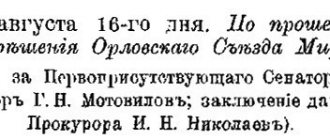- home
- Services
- Civil cases
- Civil cases
Termination of proceedings in civil proceedings is one way to close the dispute. Moreover, the dispute may end before it even begins if the judge finds out that resolving such a conflict is not within his competence. But if this form of closing a case has already been used, then it will not be possible to reopen it. Participants will have to find another reason to initiate protection of their violated rights through the courts.
Grounds on which a case may be terminated
The Civil Procedure Code of the Russian Federation has a separate article to outline all the grounds on which a judge can dismiss a case. And this is not just the right of the judge, but his duty; if any of the participants or the judge himself declares that there are grounds for dismissing the case, then it will be impossible to avoid it.
The case must be dismissed if:
- The claim must be considered outside the civil process;
- The application is submitted to protect the rights of another person, but the applicant does not have the authority to do so;
- The plaintiff demands to challenge acts that do not affect his interests;
- The dispute between the parties has already been resolved by a court or arbitration tribunal;
- Previously, the court recorded the plaintiff’s refusal of his claims or the conclusion of a settlement agreement;
- The citizen acting as a party to the case has died, or the organization has been liquidated, and succession in disputed legal relations is not allowed.
In procedural legislation, the list of grounds is exhaustive; the article does not contain a rule allowing the termination of a case on other grounds.
Grounds for closing a case
Of course, a government representative does this for a reason, but on the basis of the law. This is Article 46 of Federal Law 229 on enforcement proceedings. It is called “Return of the writ of execution to the claimant.”
Debtors are often interested in this Article 46. They usually monitor the situation with their debts using the FSSP enforcement proceedings database. At one point, instead of indicating the amount of debt, information appears about the date and reason for the closure of the individual entrepreneur.
This is what it looks like:
From this screen you can judge how long it takes for bailiffs to close cases. As you can see, one individual entrepreneur was closed 4 months after initiation, the second - after 3. Usually such short periods occur when the bailiff cannot do anything at all.
In this case, it is clear that the bailiff closed the case under Article 46 Part 1 Part 3, but this first part has other points, according to which writs of execution are also returned to the claimants:
- p 1 - if the closure is initiated by the claimant himself, he took the writ of execution;
- p 3 - if it is impossible to determine the location of the debtor, his property and the presence of accounts (this is precisely the reason indicated on the screenshot);
- p 4 - all the measures taken by the bailiff were ineffective, plus the debtor does not have property permissible for seizure. Most often, cases are closed on this point;
- p 6 - the claimant interferes with the work of the bailiff.
Based on one of the paragraphs of Article 46, the bailiff issues a resolution to terminate enforcement proceedings and returns the writ of execution to the owner of the debt. In the case of a loan - to a bank or collector, if the debt has already been sold.
Procedure for terminating proceedings in civil proceedings
Once a claim is submitted to the court, it is reviewed for compliance with the law. The grounds for refusing to accept a claim partially overlap with the grounds for dismissing the case. And if the claim is nevertheless accepted for consideration, because the grounds for refusing to accept it have not been identified, then the case will still not be considered, but this will be done through another procedural action - termination of the case.
It is in the interests of the defendant to find a reason to terminate the consideration; therefore, he can submit a petition to the court, where he will explain in a reasoned manner on the basis of which he demands to terminate the process. A civil lawyer who knows all the intricacies of litigation will help you draw up such a petition.
The judge issues a ruling to terminate proceedings in a civil case. It is interesting that the article on refusal to accept a claim states that a private complaint . In relation to the determination to terminate the case, there is no such clause in the law.
What does the bailiff do before closing?
Usually the case is closed within six months after enforcement proceedings are opened. It seems that this period is enough to apply all the required measures and understand whether collection is even possible.
The law allows you to keep a hopeless case open for up to 3 years, but usually bailiffs don’t delay things like that and close cases much faster. But if there is movement on the account, the debtor pays something (even thanks to a compulsory measure), the account of these three years begins anew.
What does the bailiff do to collect the debt:
- As soon as the case reaches the FSSP, the specialist requests information from the Federal Tax Service and the Pension Fund about the official income of the debtor. When they are at their place of work or receive a pension, a resolution is sent according to which 50% of all income will be withdrawn from the debtor.
- If there is regular income, the case will not be closed; the debt is gradually repaid by retaining this 50%. If there is no such income, the bailiff proceeds with further actions.
- He submits requests to major banks in the country and region in order to find the debtor’s accounts, cards and deposits. If they are discovered, all money located there is confiscated. All future applicants will also be selected.
- Search for the debtor's property, its arrest, sale. Cars often come under attack; bailiffs impose sales restrictions on them immediately upon opening an individual entrepreneur. They may also confiscate personal valuables at the debtor’s place of residence.
The debtor's property is not touched if it is his only residential property. In addition, when seizing property, the principle of proportionality applies. For example, a dacha worth 1,000,000 will not be taken away for a debt of 500,000 rubles.
If the debtor has no official income, if there is no movement of funds in his accounts, if he does not have property permissible for seizure, the bailiff has nothing more to do. He cannot hold the bad debt as ballast and closes the case.
Exception identified in the course of judicial practice
Sometimes judicial practice runs counter to legal norms. Such cases include the termination of proceedings in a civil proceeding relating to divorce. According to the rules of legal proceedings, spouses are given a month (Article 23 of the Criminal Code), during which they can resolve controversial issues, withdraw the statement of claim, thereby stopping the consideration of the case at the initial stage, until its logical conclusion and a decision.
If reconciliation did not last long, the plaintiff may file a second claim containing essentially the same subject matter and legal grounds. The only difference is the reason for the divorce. The court is obliged to accept the petition, it is subject to consideration in the prescribed manner. If the legislation of the Russian Federation did not provide for the repeated submission of an application to the judicial authority and did not give permission for this action, it would not comply with the principles of the law of a democratic state, declaring the lack of freedom of choice among citizens.
Actions of a procedural nature, regulated, in particular, by the chapters and articles of the Code of Civil Procedure of the Russian Federation, contain many nuances. Murzakova E.M. will provide qualified assistance to citizens who are interested in such issues as termination of proceedings in civil proceedings. It is extremely difficult for a person without a legal education to understand the intricacies on his own. A call to 8 (495) 505-24-50 will help clarify the situation.
Return to Civil Cases section
Why does the bailiff close the case?
After the trial, the case of collecting a credit or other debt goes to the bailiff. He has his own instruments of pressure on the debtor, which the law has given him. But it happens that all the measures taken do not produce results.
Collection cannot last indefinitely. Bailiffs are already overwhelmed with work and do not have time to work as they should, so they get rid of bad debts by closing enforcement proceedings. The law gave them this right.
The bailiff will close the case only if he has taken all measures and they have not been successful. In fact, this means that the representative of the law cannot do anything.
What happens in practice
But as practice shows, banks are not particularly persistent in this matter. Often they don’t even contact the bailiff a second time. Having received the IP back, it simply sells the debt to collectors. Well, or they reopen the case 2-3 times, and then write off the debt as hopeless.
Banks are well aware that if the bailiff was unable to do anything during a conditional 1 year, the situation is unlikely to change. We are talking about a chronic debtor, sometimes they are even called professional. Therefore, it is easier for the bank to sell the debt to collectors, gaining at least a penny.
But new debt owners can go to court again and then go to the bailiffs. And then enforcement proceedings are opened again, again the bailiff will have to “break through” the debtor.
In any case, the collection process cannot last indefinitely. Sooner or later, the collectors will also give up.
FAQ
How long does it take for the bailiffs to close the case?
There are no exact dates, it all depends on the circumstances and the specific bailiff. If the debtor is initially determined to be hopeless, the case may be closed within 3-5 months. Otherwise, approximately six months after the last movement of money in the account.
Can bailiffs close a case?
They can on the basis of one of the paragraphs of Article 46 of Federal Law 229 On Enforcement Proceedings. Most often we are talking about Article 4: all the measures taken by the bailiff did not produce results.
How many times can the claimant resume proceedings?
The law does not limit him in this. He can reopen the case six months after the closure of the IP. If the bailiff closes it again, after six months the claimant can repeat the action.
The case was closed a long time ago, but the debt reappeared in the FSSP database, why?
The debt owner has 3 years to reopen the case. In your case, he exercised this right. Perhaps the bank sold the debt to collectors, and they resumed the case.
Case closed, can I fly abroad?
It is possible, provided that this was the only debt that created an obstacle to this. But hurry, the case may reopen.
Sources:
- Consultant Plus: Federal Law “On Enforcement Proceedings”.
about the author
Irina Rusanova - higher education at the International East European University in the direction of "Banking". Graduated with honors from the Russian Economic Institute named after G.V. Plekhanov with a major in Finance and Credit. Ten years of experience in leading Russian banks: Alfa-Bank, Renaissance Credit, Home Credit Bank, Delta Credit, ATB, Svyaznoy (closed). He is an analyst and expert of the Brobank service on banking and financial stability. [email protected]
Is this article useful? Not really
Help us find out how much this article helped you. If something is missing or the information is not accurate, please report it below in the comments or write to us by email
Closed bailiff cases can be reopened!
If the debtor suddenly sees that the bailiff has closed the enforcement proceedings, he is always very happy. This means that borders will be open, the ban on registration of vehicles will be lifted, and cards and accounts can be freely used again. Of course, provided that there are no other individual entrepreneurs in relation to this citizen.
But the joy may be temporary. The claimant, having received the writ of execution back, will not be happy about this. He has the right to renew the IP by again contacting the bailiff. And he can do this as many times as he wants.
After six months, the collector can again present the writ of execution to the bailiff and resume the collection process. He has 3 years to do this.
It turns out that the case will be finally closed only if 3 years have passed since the bailiff closed the IP. Upon expiration, the claimant loses this right. So, don't rush to rejoice. You have to wait, the debt may appear in the FSSP database again at any moment.
How to close a loan if the case is with the bailiffs
If you want to stop enforcement proceedings by closing the loan, you need to pay the debt. You can go to the FSSP database or State Services, find this debt and pay it there via remote channels, taking into account the enforcement fee of the bailiffs.
Afterwards, it is better to visit the bailiff, indicate the fact of payment and ask to close the case. Unfortunately, this does not always happen quickly and automatically. Often bailiffs need to be pushed.
3.5 / 5 ( 4 voices)



